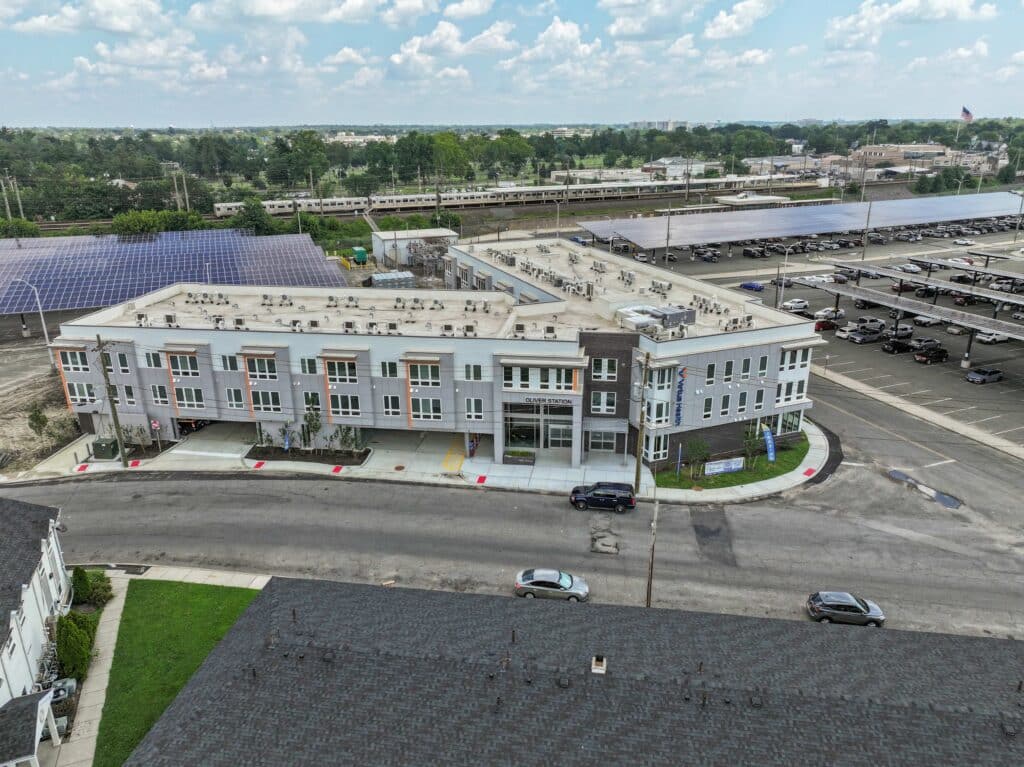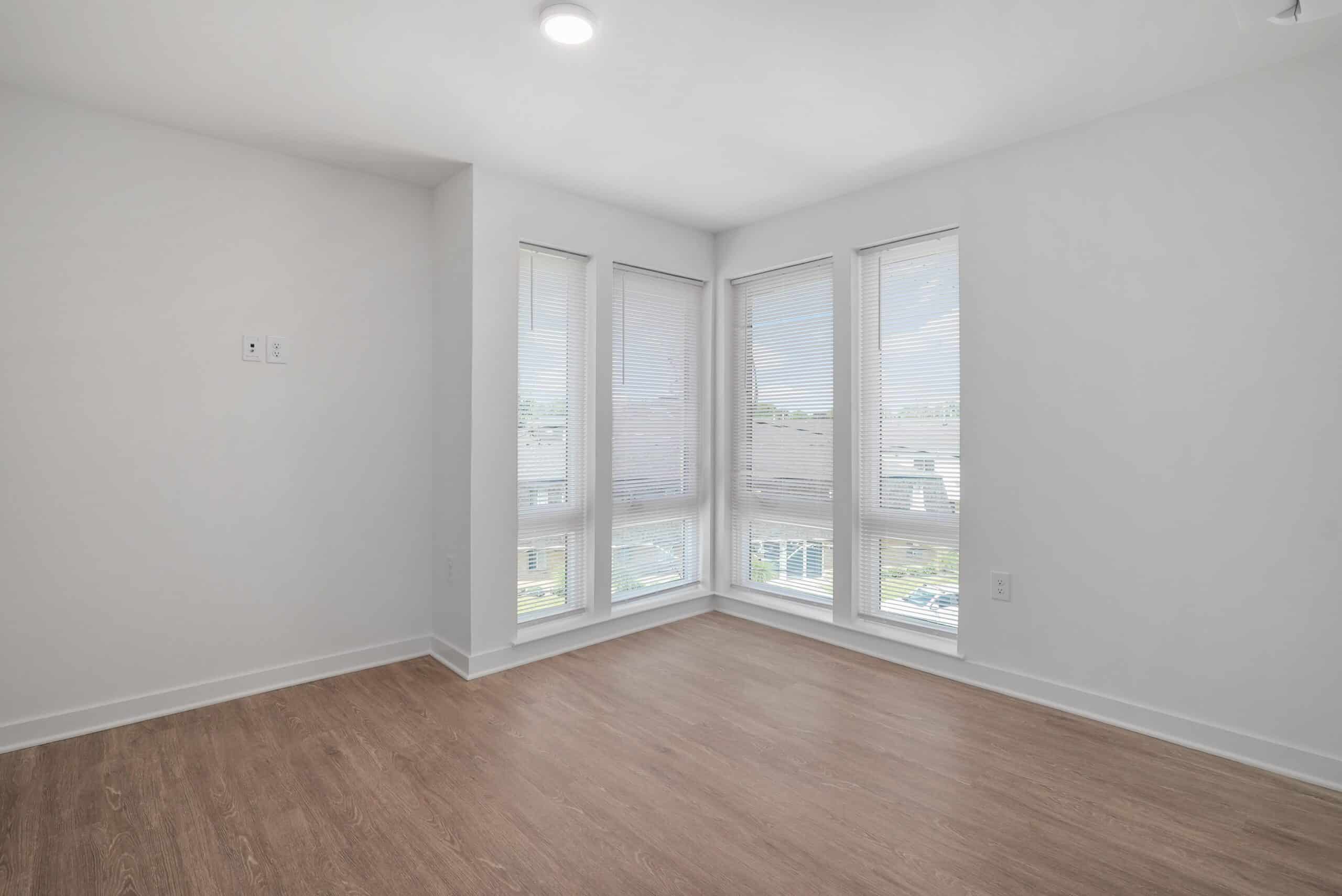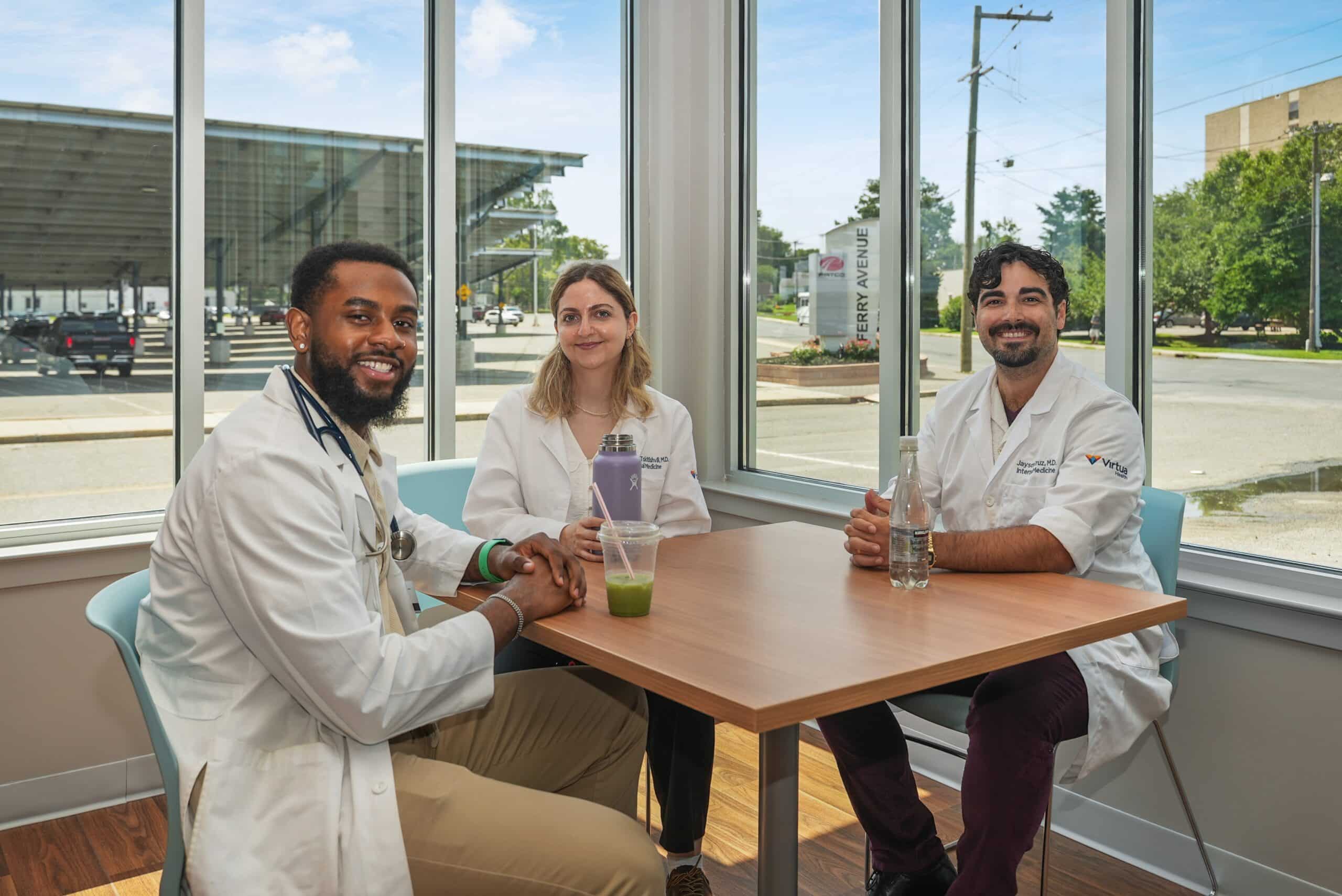A Tree Grows in Camden
State Match Enables Primary Care Facility at NJ Development

By Mark Fogarty
6 min read
A state matching loan has facilitated a full-service primary care health facility at Oliver Station, a recently completed development in Camden, NJ. The project, from the Camden-based Michaels Organization, provides 47 units of subsidized housing for seniors 55 and older and at or below 60 percent of Area Median Income. Ground broke on Oliver Station late 2023, and the project officially opened on August 7 of this year.
Oliver Station has, thus far, been a resounding success. According to Nick Cangelosi, regional vice president of development at Michaels, the project was fully leased-up just 12 days after opening. It has also won the two biggest housing awards in the state: the Governors Housing Excellence Award and the New Jersey Smart Growth Award. “There’s just a lot of energy in that immediate community. There’s demand for high quality senior housing that has access to these amenities — especially the health care.”

It Takes a Village
Virtua Health, Southern New Jersey’s largest healthcare provider, has partnered with Michaels on the project, and operates a 5200 square foot facility on the ground floor of the building. The on-site healthcare facility, called Virtua Primary Care – Camden at Oliver Station, will serve Oliver Station tenants in addition to residents of the surrounding Whitman Park neighborhood and beyond. Virtua staffs the health facility, while Michaels manages the residential portion of the campus.
The healthcare component was made possible by a $4.2 million Hospital Partnership Subsidy loan through the New Jersey Housing and Mortgage Finance Agency (NJHMFA) that matched a $4.1 million loan from Virtua.
According to Cangelosi, the Hospital Partnership Subsidy loan “served as a critical financial tool” that made possible the site’s integrated health offerings. “Housing, in large part, is health care,” Cangelosi says. So the idea of partnering world class health providers with real estate professionals and bringing that under one roof is just incredible.”
Advertisement
Other financing included $9.6 million in Low Income Housing Tax Credit equity syndicated through Berkadia, a $1.75 million permanent mortgage from NJHMFA and a deferred developer’s fee of $1.29 million. An additional $750,000 from NJHMFA’s Special Needs Trust Funds will finance supportive housing efforts for five of the units.
The partnership between Michaels and Virtua has been years in the making. Bob Segin, executive vice president and CFO of Virtua Health, says that the state’s Hospital Partnership Subsidy Program prompted Michaels to connect with Virtua to begin conversation about partnership opportunities. Thereafter, “Virtua quickly involved its finance and facilities teams, as well as its Virtua Medical Group physician network, to explore the possibility,” Segin says.
Though healthcare is central to the project, Oliver Station offers other amenities. Sharing the ground floor is a 1,000 square foot kitchenette and community room, a laundry room and a fitness center for residents, in addition to the healthcare facility.
41 of the development’s units are one-bedroom; six are two-bedroom.

Before Michaels’s involvement, the Oliver Station site was a “blighted, abandoned office building,” says Cangelosi. “In fact, the building had a tree growing through the middle of it. The Camden Redevelopment Agency had to take it over. We partnered with the Camden Redevelopment Agency for the land, and they conveyed it.”
The site was small, with less than an acre of land, so Oliver Station required some careful design. Cangelosi calls Oliver Station “a podium build,” meaning a construction built on stilts to fit parking underneath. Michaels partnered with Camden-based architect Urban Practice and utilized in-house Michaels Construction for the build.
Oliver Station is named after two unrelated Camden figures named Oliver: 19th Century abolitionist Thomas Clement Oliver, a conductor on the Underground Railroad, and former New Jersey lieutenant governor Sheila Oliver, whom Cangelosi calls “a key figure in innovative housing in the state.”
A Model, not a Novelty
According to Cangelosi, the clinic is the first facility of its kind in southern New Jersey, which he says can provide a “generational” impact for the community.
However, Cangelosi also stresses hope that the partnership serve not as a novelty, but as a model for future developments. “We think Oliver Station could be a model for more housing–healthcare initiatives, both locally and throughout the country,” he says. “I’ve gotten a couple of calls from health care systems locally, and Michaels is a national developer, so we’ve been talking to health care organizations all over the country considering a similar model.” Hospitals, he adds, have a mission to invest in their neighborhoods. “It seems like a win–win for everybody.”
For the residents of Oliver Station, health care “will be literally at their doorstep,” says Dr. Mithil Choksey, Oliver Station’s lead physician.

The medical facility houses ten examination rooms, and three primary doctors care for patients. Additionally, there are several other rooms for teaching programs. Glucose, urinalysis, viral infections and EKG testing are some of the capabilities of the clinic, Choksey says. “We also have a dedicated social worker and a population health nurse.”
A team of medical residents (young doctors completing their required post-graduate training) shuttles between Oliver Station and Virtua Our Lady of Lourdes Hospital four blocks away. Choksey says that this will allow those living at Oliver Station to utilize primary care services rather than the hospital’s emergency room for non-emergency care. If needed, Oliver Station residents then have quick access to the hospital’s services, such as advanced surgery, diagnostic testing and imaging.
This robust infrastructure will allow the facility to serve up to 50 patients a day, Choksey says.
The opportunity to embed primary care in the community was a “no brainer,” says Dr. Sam Weiner, the chief medical officer for Virtua Medical Group. Weiner says the on-site healthcare facility aligns with Virtua’s other community outreach programs, such as a mobile grocery store (an RV that goes into underserved communities), mobile cancer screening, and a pediatric unit that does screenings and provides vaccinations for children.
“So far, everybody seems to be thrilled,” Choksey says. “We’re hoping to do more of these.”
Thomas Clement Oliver
The Reverend Thomas Clement Oliver (1818-1900) was a conductor on the Salem and Greenwich Lines of the Underground Railroad, helping freedom seekers find their way north to New England and Canada. Born and raised in Salem, NJ, Oliver began his work when still a child, as his parents were both conductors. He later relocated to Camden, where he continued his work shepherding freedom seekers from southern areas onwards through Philadelphia.
Late in life, Oliver recounted his activities in a series of interviews with Wilbur H. Siebert, an early Underground Railroad researcher. Oliver’s eyewitness accounts provide the most detailed information available about how the system operated in Southern New Jersey.
After the Civil War he ministered to churches in New York and ultimately Chatham, Windsor and Drummondsville in Canada – free Black settlements where he had directed freedom seekers and where he continued to serve their needs until his death.